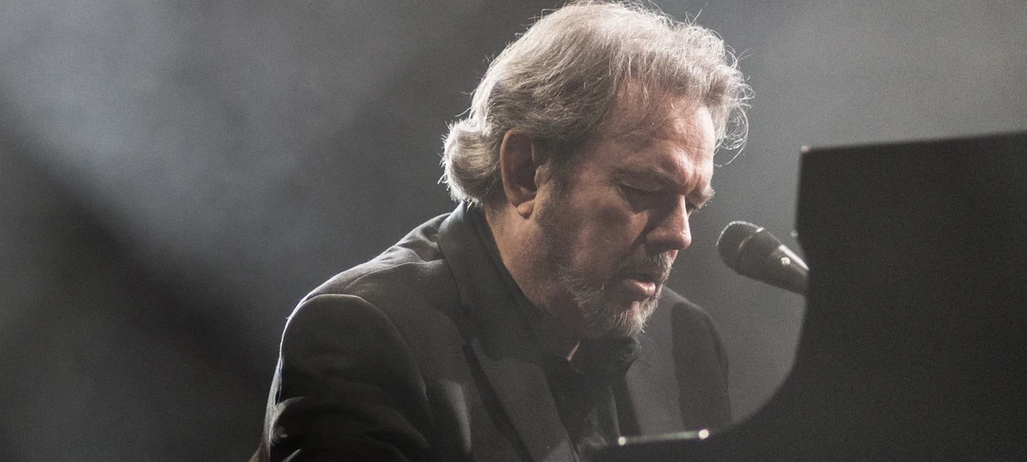This concert was scheduled July 13, 2023.
Jimmy Webb came to Santa Barbara last Thursday night for an intimate concert at the Lobero Theatre. Actually, there were three Jimmy Webbs on stage.
There was the acclaimed songwriter, winner of the first of his many Grammys at the young age of 20, and composer of that iconic trinity of American popular song: “Wichita Lineman,” “Galveston,” and “By the Time I Get to Phoenix.”
The largely baby-boomer Lobero audience also heard the singer, a role Webb had to assume in the 1970s, he explained, to keep up with the music industry embrace of the so-called “California Sound” and the emergence of the singer-songwriter.
Finally, and most surprisingly, was the effusive storyteller between songs. Performer patter is an expected part of any concert gig, but Webb seemed determined from the beginning (starting promptly at 8:01 p.m.) to share story after story of his amazing career. “I have no script,” he announced early on. “I’m just going to say whatever pops into mind. If I talk too much, just tell me to shut up.”
Fortunately, no one did. For just under two hours, Webb, now 76, balanced story with song, sprinkling in tales from Tinseltown about Frank Sinatra (“Mr. Sinatra”), Judy Collins, Johnny Rivers, and the legendary Wrecking Crew, along with spot-on impersonations of Art Garfunkel and Johnny Cash.
There was no backup band on stage—only Webb, dressed completely in black, and his piano, serving up a set list of songs he had written during his stellar career. In truth, however, Webb never performs alone because the shadow of Glen Campbell always seems to hover.
As it should. Glen Campbell and Jimmy Webb are considered one of the great musical pairings of any era. Their relationship spanned decades and Webb gave his muse, musical mentor, and dear friend his proper due Thursday night.
“Glen was a freakishly wonderful singer with a five-octave range who could sing in full voice when most tenors had to go to falsetto,” Webb said, using the piano keys to illustrate the depth of Campbell’s voice.
As the final notes faded out, simulating the increasingly faint sound of telegraph keys, Webb dedicated this music classic to his former partner’s memory.”
Later in the evening, Webb performed “Wichita Lineman,” a song Bob Dylan has called “the greatest song ever written.” Playing the instrumental part, Webb revealed to the audience that he was “thinking of Glen Campbell.” As the final notes faded out, simulating the increasingly faint sound of telegraph keys, Webb dedicated this music classic to his former partner’s memory.
The stories kept coming between songs. Art Garfunkel desperately needed a hit after his breakup with Paul Simon. Webb delivered “All I Know.” Judy Collins, who Webb called “the goddess of lost songs,” scooped up “The Moon Is a Harsh Mistress” off the forgotten pile and helped it find an audience. Mr. Sinatra always asked Webb if he had written his “big torch” yet, referring to a past romance gone wrong. With Webb, you can certainly take your pick.
He prompted an audience sing-along on “The Worst That Can Happen” and feigned surprise that people in the audience recognized the name Carol Kaye, the only female member of the Wrecking Crew. There was praise for Motown, which gave Webb an early break, and for Johnny Rivers for connecting Campbell with “By the Time I Get to Phoenix.”
But as the evening started to wind down, there was one song left in the main program. Yeah, that song. You know it. Someone left the cake out in the rain, I don’t think that I can take it . . . blah, blah, blah. We’re talking about the much-maligned and (in my opinion) vastly underappreciated Richard Harris 1968 hit “MacArthur Park.”
Webb, who is used to the criticism—after all, humorist Dave Barry calls it “the worst song in modern history”—drew comparisons to other obtuse lyrics of the day as he set up “MacArthur Park.” He mentioned Procol Harum and “A Whiter Shade of Pale,” trying to figure out about those “sixteen vestal virgins who were leaving for the coast.” And the Beatles with those “plasticine porters with looking glass ties” from “Lucy in the Sky.”
“And they give me shit for leaving a cake out in the rain!” Webb proclaimed, eyes rolling, to huge audience laughter and applause.
Webb’s voice turned mournful, tinged with clear regret for lost love and what might have been.”
But then the Oklahoma native guided us through his mystical, musical park, complete with the woman in the yellow cotton dress and the old men playing checkers by the trees. Webb’s voice turned mournful, tinged with clear regret for lost love and what might have been. Mr. Sinatra would be pleased because when you strip away the orchestration of previous recordings, “MacArthur Park” is simply Webb’s “big torch.”
That left only the encore, the more obscure “No Signs of Age” from the Webb songbook, but it was an appropriate ending for a performer in the twilight of his career.
The only disappointment came at the end of the show as I stood up and looked towards the back of the 600-seat theatre. There were far too many empty seats. How sad. A performer with this musical pedigree and talent deserved a much bigger audience.
But those of us who did show up were richly rewarded. We could hear him singing in the wire and hear him through the whine.
Jimmy Webb reminding us that the Wichita Lineman, after all these years, is still on the line.
